Tocopherol Good for Hair: Unveiling the Benefits of Vitamin E
In exploring the benefits of tocopherol for hair health, it's essential to understand the role of this compound, better known as vitamin E, as a potent antioxidant. Through its antioxidant properties, tocopherol protects the scalp and hair from damage caused by free radicals, which can result in weaker hair and potential hair loss. Our hair inevitably faces daily stress from environmental factors, making the nourishment provided by antioxidants all the more critical for maintaining healthy locks.
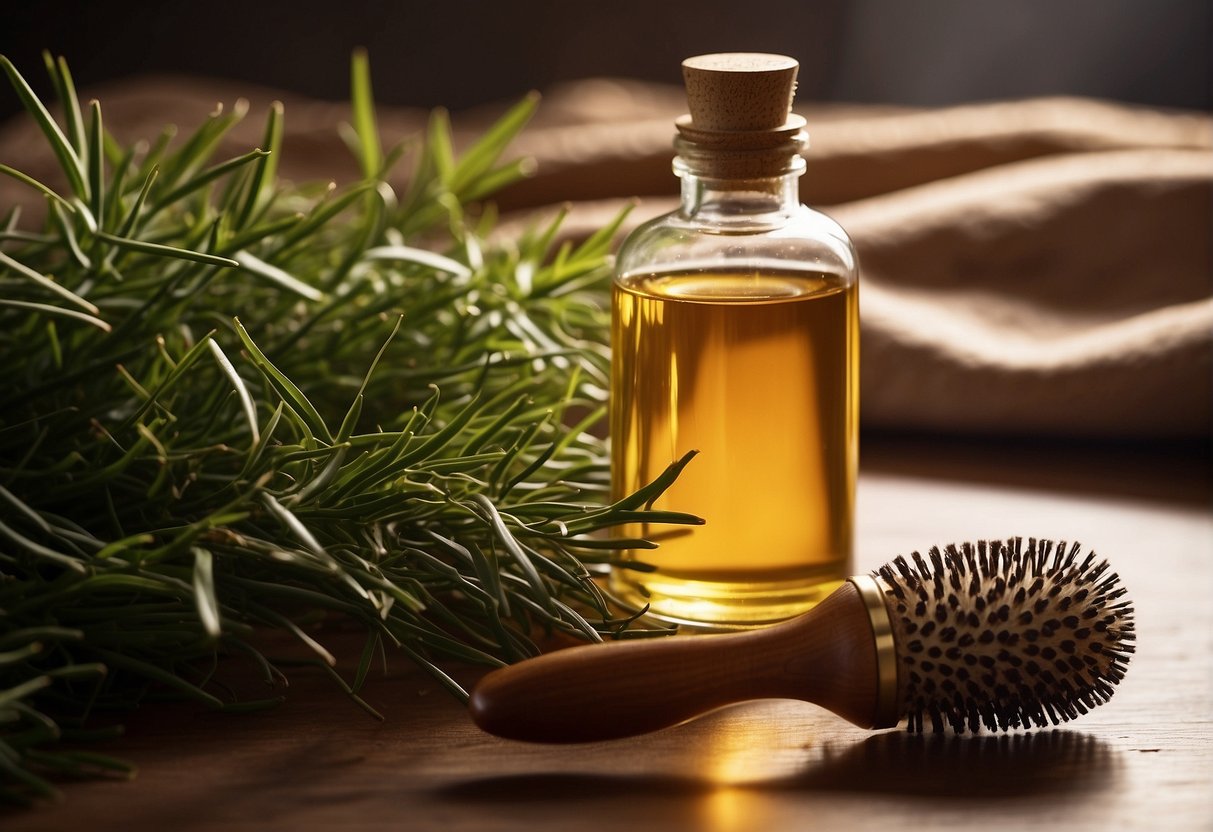
Supplementing our diet with vitamin E or using hair products enriched with tocopherol can be an effective strategy for enhancing the health and appearance of our hair. Such interventions may help to support hair growth, improve scalp circulation, and even contribute to a more youthful hair texture and sheen. As we explore the impact of tocopherol on hair, it's important to consider the existing body of research to discern the true efficacy of this vitamin in various uses.
Key Takeaways
- Tocopherol acts as an antioxidant, offering protection for the scalp and hair.
- Enriching our diet or hair care routine with tocopherol can benefit hair health.
- Research is crucial in validating tocopherol's effectiveness for healthy hair.
The Role of Tocopherol in Hair Health
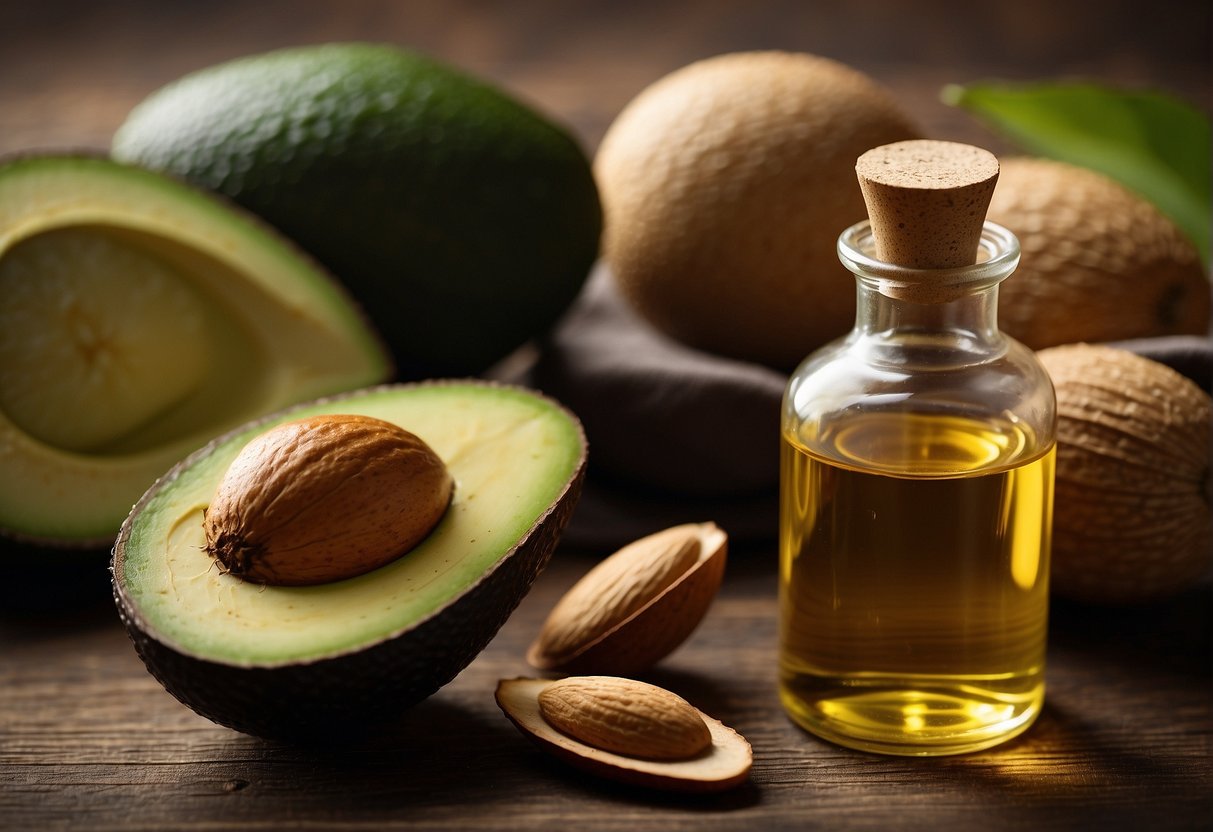
Tocopherol, commonly known as vitamin E, plays a pivotal role in maintaining hair health. Our discussion will elucidate its critical functions, focusing specifically on its antioxidant properties and their impact on the scalp, as well as its involvement in preventing hair loss and encouraging hair growth.
Antioxidant Properties and Scalp Health
Tocopherol is a powerful antioxidant that helps protect the scalp from oxidative stress, a factor that can contribute to hair disorders. The health of our scalps is paramount, as it provides the foundation for hair follicle function. By neutralizing free radicals, tocopherol preserves the integrity of the scalp's skin barrier and maintains a conducive environment for healthy hair follicles.
Preventing Hair Loss and Stimulating Growth
We recognize the significance of tocopherol in the prevention of hair loss and in the stimulation of new hair growth. Supplements with tocopherol have been observed to improve hair count in individuals with alopecia, a condition characterized by hair loss. Our hair follicles benefit from tocopherol's properties, which may enhance blood circulation in the scalp and thus foster an optimal milieu for hair growth.
Dietary Sources and Supplementation

In this section, we are going to discuss the natural sources of Vitamin E that contribute to hair health and the considerations you should keep in mind when selecting a Vitamin E supplement.
Natural Sources of Vitamin E
Our bodies gain significant benefits from tocopherols and tocotrienols—forms of Vitamin E—by consuming a diet rich in vegetables, nuts, seeds, and leafy greens. Notably, sunflower seeds, almonds, and spinach are excellent sources. To ensure a well-rounded intake of Vitamin E for hair strength and growth, include the following in your diet:
- Leafy Greens: such as spinach and kale
- Nuts: almonds, hazelnuts, and pine nuts
- Seeds: especially sunflower and pumpkin seeds
- Vegetables: such as avocado and butternut squash
- Oils: sunflower, safflower, and wheat germ oil
Choosing the Right Supplement
When diet alone does not meet our Vitamin E needs, we might consider supplementation. A vitamin E supplement can be derived from natural or synthetic sources, with natural sources often labeled as "d-alpha-tocopherol" and synthetics as "dl-alpha-tocopherol." We should look for supplements that contain mixed tocotrienols for the broadest range of vitamin E activity. Remember to consult with healthcare professionals before starting any supplement, especially if you have an existing health condition or are taking other medications.
Tocopherol-enriched Hair Products
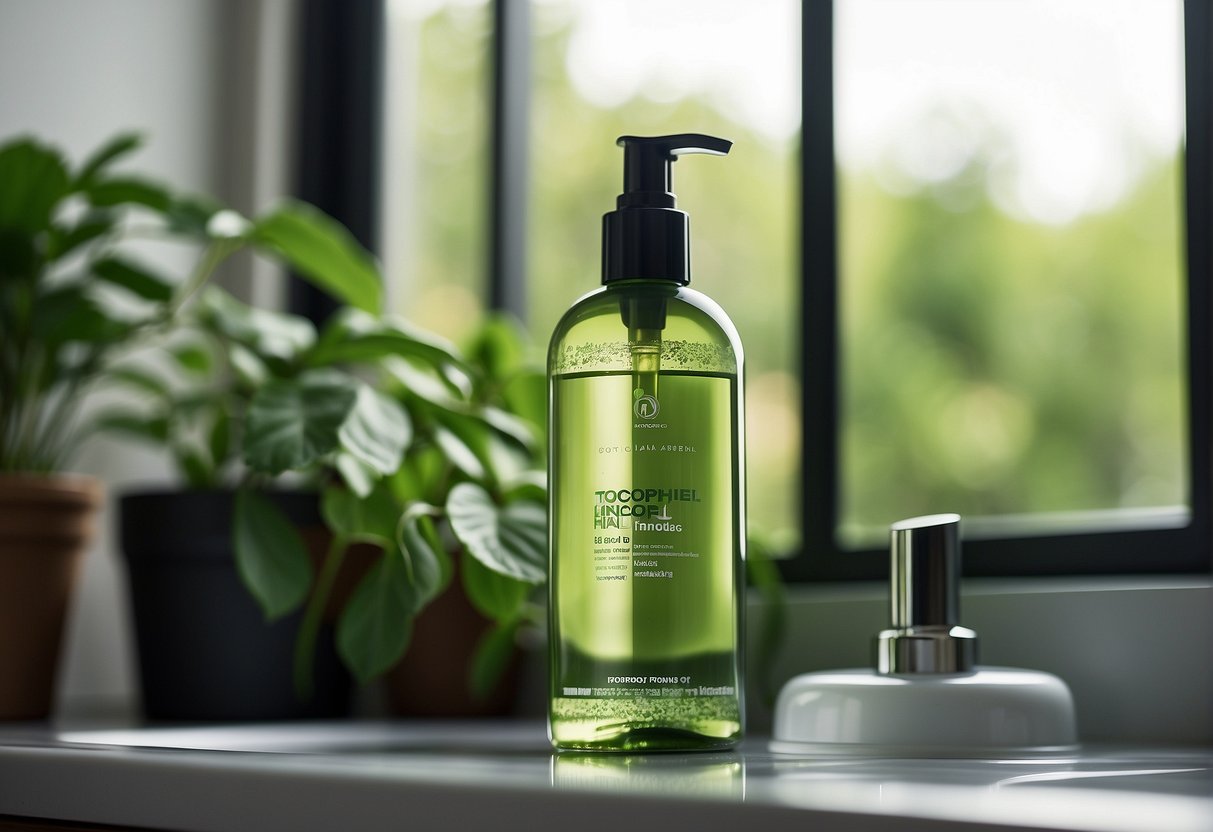
Tocopherol, commonly known as Vitamin E, is integral in promoting hair and scalp health. Its antioxidant properties help to protect hair from damage, maintaining shine and combating the negative impacts of free radicals.
Shampoos and Conditioners with Tocopherol
We find that shampoos and conditioners enriched with tocopherol significantly contribute to healthier hair. They work by incorporating Vitamin E directly into the hair cleansing routine, which can help to repair and strengthen hair strands, leading to less breakage. When selecting a tocopherol-infused shampoo or conditioner, it's important to also look for other nourishing ingredients that complement tocopherol, such as olive oil or coconut oil, which serve as excellent carrier oils and provide additional moisture and shine.
Hair Oils and Masks
In our experience, hair oils and masks that list tocopherol among their ingredients can be particularly effective for treating dry, damaged hair. These products are typically left in the hair for an extended period to allow deeper penetration of nutrients. Applying a tocopherol-rich hair oil or mask once or twice a week can create a noticeable improvement in the hair’s overall health and luster. It's essential to evenly distribute the product from the scalp to the ends, as tocopherol supports scalp health while also working to repair the hair's natural barrier against damage.
Understanding the Efficacy through Research
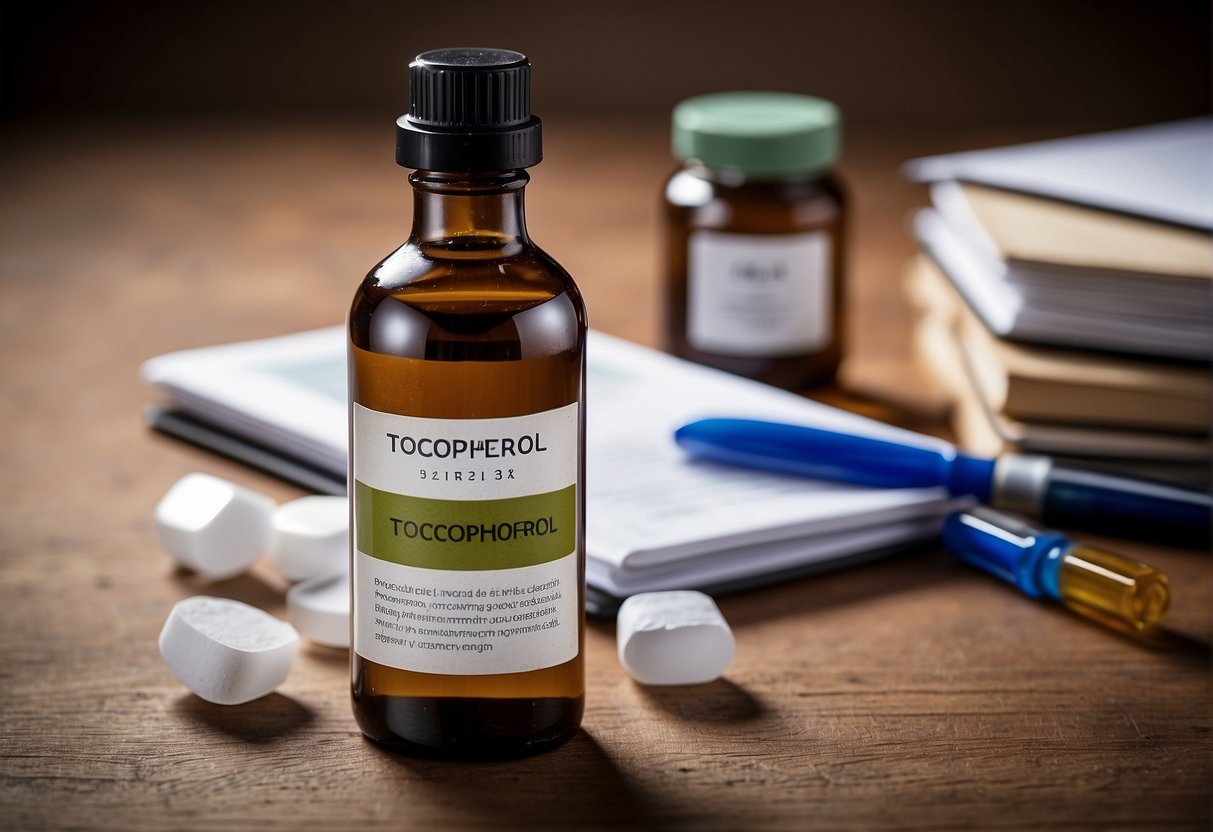
In examining tocopherol's effects on hair health, we prioritize clinical research to validate its efficacy against oxidative stress.
Clinical Studies and Their Outcomes
We synthesize data from controlled trials where tocopherol supplements were given to volunteers with hair concerns. One significant study involved the administration of an oral tocopherol-rich antioxidant supplement to subjects suffering from androgenetic alopecia. The outcomes showed improved hair count compared to the placebo group, suggesting tocopherol's potential in promoting hair regrowth.
In exploring the role of antioxidants in hair care, tocopherol's efficacy is often assessed against oxidative stress, which can damage hair follicles. Research consistently highlights antioxidants as crucial in mitigating these effects. Volunteers in trials using tocopherol both topically and orally reported observable benefits, underlining its role as a supportive agent in hair health.
Ongoing studies continue to unravel how tocopherol, as an antioxidant, contributes to hair health. Through meticulous research protocols, including placebo-controlled experiments, we understand tocopherol's impact on various hair conditions. We remain committed to engaging with emerging research to present evidence-based insights into tocopherol's role in hair care.
Safety and Potential Side Effects
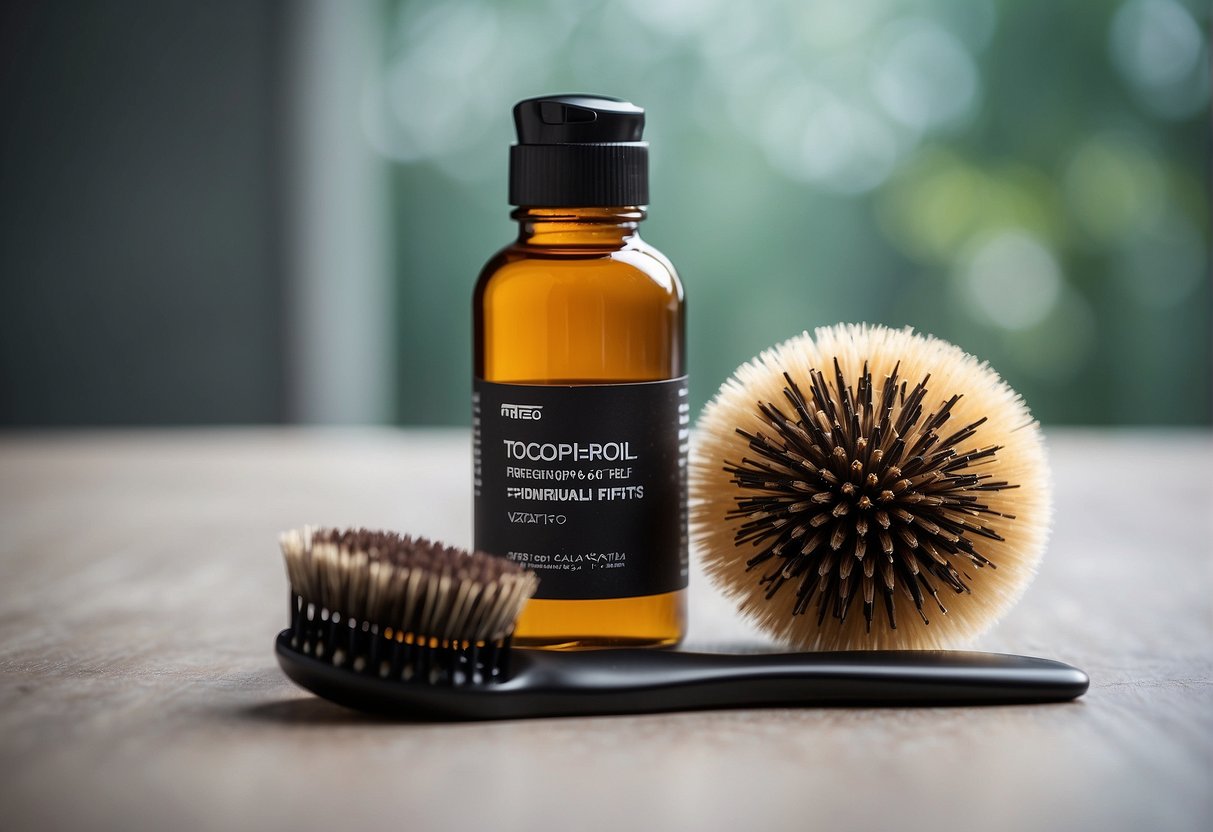
When considering vitamin E, specifically tocopherol, for hair health, it is crucial to address safety concerns and potential side effects. Tocopherol can support a healthy scalp, but its usage requires an understanding of appropriate dosage and interaction with medication.
Managing Risks with Proper Dosage
We recognize that vitamin E supplements can be beneficial for maintaining a healthy scalp and potentially aiding hair growth. However, it is essential to adhere to the recommended dietary allowances (RDA) to prevent skin irritation and other side effects. High doses of tocopherol pose risks; notably, the FDA has established upper intake levels that are considered safe. Exceeding these levels can lead to adverse effects such as scalp discomfort or more serious health issues. Therefore, we always encourage following professional healthcare advice for dosage.
- Recommended Dietary Allowance (RDA): Varies based on age and gender
- Upper Intake Level (Safety Threshold): High doses should not exceed this limit
- Potential Side Effects at High Doses: Include skin irritation and systemic effects
Interactions with Medications
We are aware of the interactions tocopherol can have with certain medications. Those undergoing chemotherapy or taking medicine for cancer should be particularly cautious, as vitamin E supplements may affect the efficacy of these drugs. It is our responsibility to consult healthcare providers before combining tocopherol with any medication to avoid unintended interactions.
- Consultation with Healthcare Providers: Essential before starting supplementation
- Chemotherapy and Cancer Medications: Specifically at risk of interaction
- Individual Medication Review: Required to identify any potential risks
Frequently Asked Questions
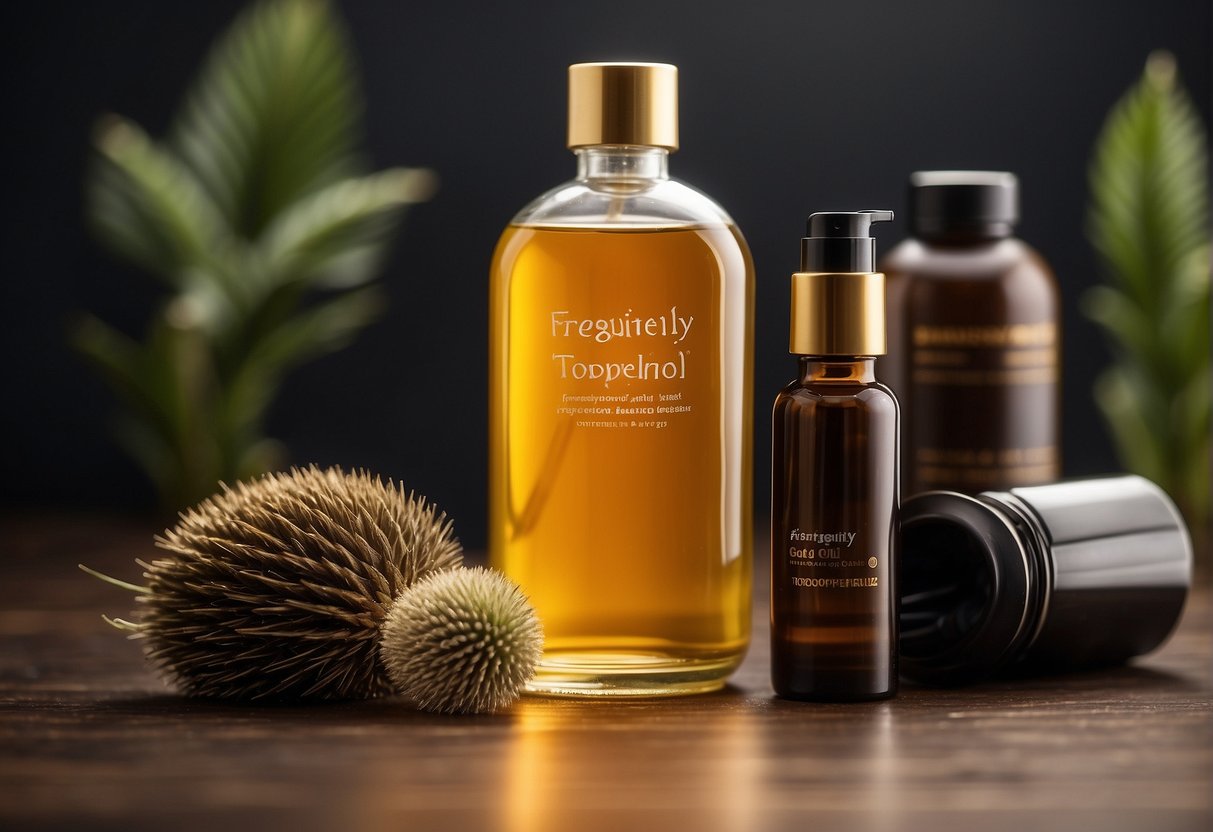
Vitamin E, known for its antioxidant properties, plays an important role in hair care. We'll discuss how applying tocopherol, a form of vitamin E, can benefit hair health and growth.
What are the benefits of using vitamin E serum on hair?
Vitamin E serum can deeply condition the hair, improve its luster, and reduce oxidative stress which may lead to hair aging and damage.
Can vitamin E be applied to hair overnight for improved health?
Yes, applying vitamin E overnight allows for deep penetration of the nutrient, potentially aiding in the reduction of hair dryness and breakage.
How often should vitamin E capsules be used on hair for best results?
We recommend using vitamin E from capsules on the hair once or twice a week, as overuse can lead to greasiness and may weigh down lighter hair types.
In what ways does vitamin E contribute to hair loss prevention?
Vitamin E supports a healthy scalp environment, which is crucial for preventing hair loss. Its antioxidant action helps to combat the damage caused by free radicals.
How does vitamin E compare to biotin when it comes to hair care?
While vitamin E is an antioxidant that helps prevent oxidative stress in hair, biotin strengthens keratin structure in hair follicles. Both nutrients play distinct roles in hair maintenance.
Does incorporating vitamin E into your diet promote hair growth?
Incorporating vitamin E in your diet can support hair health from within, as it helps maintain healthy circulation, which is key for nutrient delivery to the scalp and hair follicles.